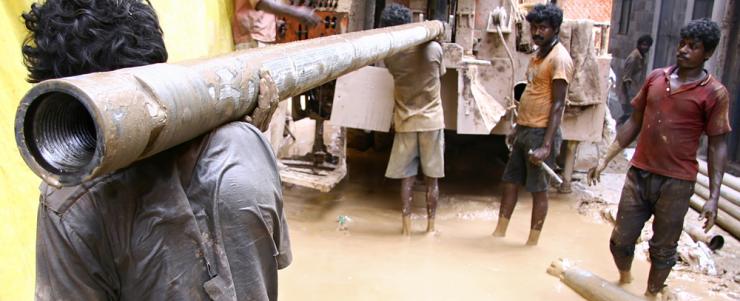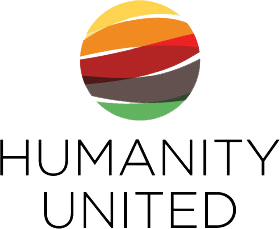A Framework for Action: What Can Suppliers Do?
Like their clients – the global brands for which they manufacture goods or provide services – suppliers are in a strong position to take effective action against abuse at the recruitment and hiring stages of the employment relationship. They, too, can develop wide-ranging CSR programs establishing codes, self-assessment protocols, corrective action plans and partnership agreements that seek to address this abuse. They can also use their own human resource management systems to ensure the elimination of coercive practices that place migrant workers at risk.
Taking these steps will not only protect suppliers from compliance violations at their facilities, but it will also help migrant workers to begin their employment “on the right foot”. Setting the right tone in recruitment and hiring will pay dividends at the workplace, helping to ensure that you have a workforce that is happy, healthy and dedicated to working at your company.
Many suppliers are already implementing a social responsibility program aimed at meeting social and labor standards set by their customers, or as part of an industry initiative (e.g., the FLA, the ETI or the EICC), and may have policies, processes and practices in place to screen out and manage the risk of forced labor issues in their own workplaces. However, the risks of forced labor, debt bondage and trafficking, take on a different dynamic when companies hire migrant workers. The risks escalate further when migrant workers are hired through local or foreign labor brokers. Even for suppliers with existing social responsibility programs, the use of labor brokers means that existing programs may need a boost.
If suppliers hire domestic or foreign contract workers through labor brokers, they also need to ensure that specialized knowledge, procedures and practices are incorporated into their organization’s management systems and operational processes. Doing so will help meet their business needs, without sacrificing the rights of their employees or exposing their company to liabilities. Verité’s Systems Approach to Social Responsibility – represented by the tools offered in this Fair Hiring Toolkit and in Verité trainings offers a framework for action.
1. ORGANIZATIONAL/MANAGEMENT SYSTEMS LEVEL: INTENT
First, review your company’s written policies. Do they include a policy prohibiting forced labor? Do they also prohibit debt bondage and trafficking? Do they apply to all levels of operation and labor, manufacturing and materials supply chains? Do they apply to all geographic areas where your company has operations?
If your company already has a written policy commitment addressing forced labor, you may just need to strengthen the policy language to include specific prohibitions on debt bondage and trafficking. If these prohibitions are already included, you may also need to extend your commitment to fair, legal and humane treatment to migrant workers. While protections of migrant workers may already be indirectly reflected in nondiscrimination, wage, benefits, or labor-relations or other policies, if your company employs a large number of migrant workers, it is important to have this commitment at the heart of company policy.
Step 1 of the Fair Hiring Toolkit for Suppliers offers practical guidance and good practice examples of how suppliers can strengthen existing codes or develop new ones to effectively address forced labor and trafficking of migrant workers.
2. OPERATIONAL/PROCESS LEVEL: IMPLEMENTATION
Once policies are in place, you can establish clear implementation procedures.
You may already have clear and well-communicated procedures for selection, recruitment and hiring workers under your Human Resource Management Department, but these procedures may only reflect the process for hiring local workers, or for hiring directly (without labor brokers). If that’s the case — and your company hires migrant workers or outsources the hiring of migrant workers to a labor broker – company procedures will likely need updating to address the related risk.
There are two primary ways to update existing hiring procedures to address the risks of hiring migrant workers:
- Review and strengthen existing hiring processes and add controls to address risks where necessary; or
- Develop a parallel hiring procedure that is triggered when migrant worker is hired or a labor broker is used.
If your company hires migrants migrant workers — even if the company does not use labor-brokers as on-site managers — company procedures for recruiting, hiring, and on-site management should take into account:
- The additional legal requirements for hiring migrants. In addition to your local labor laws, you also need to consider the immigration laws of the sending and receiving countries, as well as the worker’s country of origin (if different from the sending country.) Where there are conflicts among these various regulations, your procedures should harmonize them such that you meet all regulations and still adhere to your overarching commitment to avoid forced labor, debt bondage, and trafficking.
- The higher-order requirements (to address social responsibility risks) set by your industry or by your customers for hiring foreign workers. Again, where higher-order requirements conflict with legal requirements, your procedures should harmonize them. A clear example of such a conflict is when immigration requirements hold employers accountable for ensuring that foreign workers do not stay in the host country beyond certain time limits. This policy incentivizes employers to hold workers’ passports and other documents, as a way of protecting the company from the risk of workers “running away” from the facility and then overstaying their visas elsewhere in the country.
If your company currently uses, or is likely to use a labor broker in the future, your company should have procedural guidelines in place for:
- Screening and Evaluating Labor Brokers – Screening brokers up front, before you officially engage them, will ensure that your company’s business needs are met. By screening brokers up front, your company can ensure that it works with labor brokers who can provide workers with necessary skills on time, and that those workers will be treated legally, fairly and humanely.
Your company can update procurement systems for screening your manufacturing or raw materials suppliers, to reflect the different output and performance objectives that you require of labor brokers.
Step 3 of the Fair Hiring Toolkit for Suppliers offers sample questions and a rating system to assist companies in designing a screening process for labor broker candidates, and deciding which labor broker to hire. It also details some key areas of concern in the screening process.
- Managing Labor Brokers and Monitoring for Ethical Recruitment and Hiring – Once your company has engaged a labor broker, you will need a procedure that provides visibility into how your labor broker performs and meets its ethical and business obligations. Having a monitoring system in place gives you an objective basis for management decisions and incentivizes labor brokers to improve their performance.
Step 4 of the Fair Hiring Toolkit for Suppliers offers proactive management strategies that companies can employ to best ensure that legal and social compliance requirements are met by their labor brokers. It also offers guidance on key issues to consider during a labor broker performance assessment, and concrete sets of questions that can be adapted by companies in monitoring and evaluating broker performance.
3. TASK LEVEL: PEOPLE
Once procedures are established, you will want to ensure that each person in the company involved in these procedures has the knowledge, skills, tools, incentives and motivation to perform their tasks effectively.
Even when policies and procedures are robust, there may still be problems meeting objectives if the responsible staff members do not have adequate training or information. Capacity building is a first step. Controls, in the form of management and operations-level support for each individual in the process, need to be identified and put in place.
Step 2 of the Fair Hiring Toolkit for Suppliers provides some basic information that you can translate into training and communication materials for different levels of employees within your organization and supply chain.
For Brands
Framework for Action: What Can Brands Do? >>
1. Improving Codes of Conduct and Company Policies >>
2. Raising Awareness and Building Capacity >>
3. Strengthening Assessments & Social Audits >>
4. Taking Corrective Action & Developing Systems Improvement Plans >>
5. Reporting & Transparency >>
6. Multi-Stakeholder & Multi-Brand Engagement >>
7. Public Policy Advocacy >>
For Suppliers
Framework for Action: What Can Suppliers Do? >>
1. Improving Codes of Conduct & Company Policies >>
2. Raising Awareness & Building Capacity >>
3. Screening & Evaluating Labor Recruiters >>
4. Managing Labor Recruiters & Monitoring for Ethical Recruitment & Hiring >>
5. Ensuring Good Practice in Human Resources Management >>
6. Establishing Effective Grievance Mechanisms & Protection for Whistleblowers >>
7. Taking Corrective Action & Developing Systems Improvement >>



